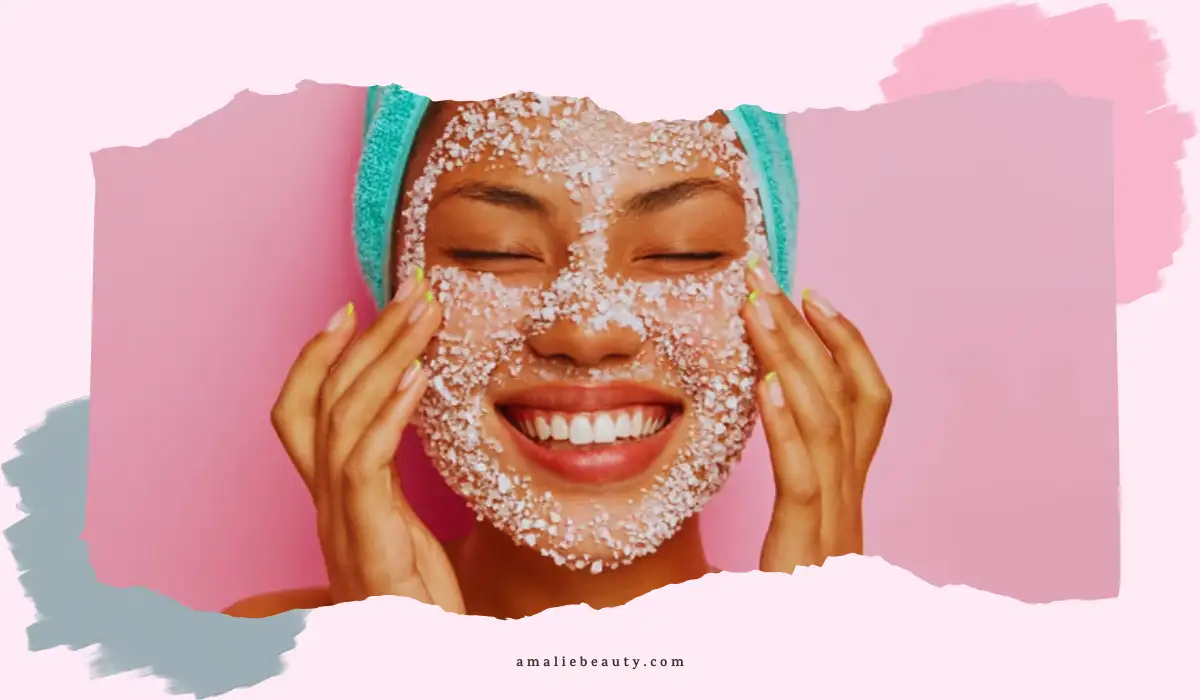One of the most important parts of the skincare routine for people worldwide. Facial exfoliation is a great way to remove dirt and excess oil from your skin if you are into skincare and would like to maintain your hygiene.
People usually have a dilemma with exfoliation time, whether to do it before shaving or afterward. Exfoliation is one of the best ways to clear out pores and reduce the excess oil in your skin.
So, when you are looking for confirmation about whether it should be done before shaving or not, there are certain details you should be aware of.
What’s The Significance Of Exfoliating Your Face During Shave?

Facial exfoliation is completely different from other parts of the body. When you are exfoliating your facial skin, there are several things that you should keep in mind, including your skincare routine.
When you exfoliate your limbs or back, it needs a little extra effort and body wash to do so, which is due to the rigidity of the skin on your body.
However, facial skin is much more fragile and sensitive than other body parts, and if you use the same products and force, it could lead to redness, damage, or scar on your face.
Pimples, acne, and dryness are all caused due to the lack of skin hygiene; exfoliating your skin regularly clears out your pores and helps you shave properly.
And, when the matter is about shaving, make sure you are exfoliating your face thoroughly, as it can help you get a clean and hygienic face to use a blade on.
Should You Exfoliate Before Or After Shaving?
Exfoliating your skin before shaving is the best choice when looking for proper regrowth of your facial hair.
If you are exfoliating your face before your shave, it has been clarified by a study that it can lead to better hair regrowth on your face.
Exfoliation leads to clear and smooth skin, leading to a quality and cuts-free shave, and it can help you regrow facial hair in symmetry as well.
Prior shaving exfoliation of your face can help you remove all the dirt and help you glide your raiser smoothly.
In addition to that, make sure you are exfoliating your face a couple of minutes before your shave, as it can help you glide your razor smoothly without any cuts and bruises.
How Does Exfoliating Improve Your Facial Skin Health?
Exfoliation is good for most people; it’s the intensity and usage of products that matter the most. When you are exfoliating your face, if it feels harsh or uncomfortable, this might not be the best option for your skin type.
For others, those who don’t have any redness or discomfort can exfoliate their skin regularly, as it improves skin quality and tone.
And, if you ask if it is good or not, then the answer is yes because exfoliation is good for your skin. It leads to healthy, bright-toned skin for a long time.
Exfoliation is not only helpful in maintaining your skin health; it can even help you regrow facial hair properly and faster.
How To Exfoliate Your Skin Properly?
When it comes to exfoliating your skin properly to clear out all the dirt from the pores, it’s essential to know about certain things beforehand.
So make sure you are following these steps carefully and exfoliating your skin properly,
- The first thing you can do while exfoliating your facial skin is wash your face with lukewarm water to loosen up your skin pores and beard.
- After getting your face soaked in warm water, you can apply your exfoliator to your skin.
- Massage your face with your hands, gently distributing the exfoliator all over your face.
- Do the exfoliation for at least 30 seconds and then wash it to get a clean and hygienic face.
All these steps are to be followed with an herbal product, and make sure you are using clean hands to do so, as dirty hands can get germs or dirt into your pores and cause even more pimples.
Other Significant Benefits Of Facial Exfoliation
Facial exfoliation is a simple yet very effective part of your skincare routine, as it clears all the clogged pores and removes dirt from your skin.
So, make sure you are using herbal and high-quality products to get all these benefits and not harm your skin at the same time.
Doing so can lead you not only to have glowing skin but also help you achieve pimple- and acne-free skin for a long time.
When looking for other significant benefits of exfoliation, you should know that it elevates your skin tone, helps reduce skin dryness, and even helps you keep your skin clean and hygienic. So, there is no doubt you should exfoliate your skin regularly.
Effective Skincare Routine After Exfoliation And Shaving
When you’ve exfoliated your skin and shaved your facial hair properly, don’t just leave your face like that. You can follow a simple skincare routine to make sure your face doesn’t get razor bumps or dryness.
After cleaning all of your facial hair and dirt, use a disinfectant to take care of any cuts or bruises.
After some time, you can apply a moisturizer to prevent dryness and flaky skin; you can use a toner or salicylic acid if you want.
Using a vitamin E serum or salicylic acid can help you restore the brightness of your skin and reduce pigmentation at the same time.
Conclusion
Shaving and exfoliating are both important parts of our lifestyle; ignoring any one of these is usually a choice, but it can cause clogged pores and acne breakouts.
When you are exfoliating your facial skin, make sure you are keeping the skin wet for a couple of minutes before shaving your face.
Minimize unhealthy and junk foods to ensure smooth and oil-free skin, and maintain an exercise routine to have better pH skin levels and tone.

